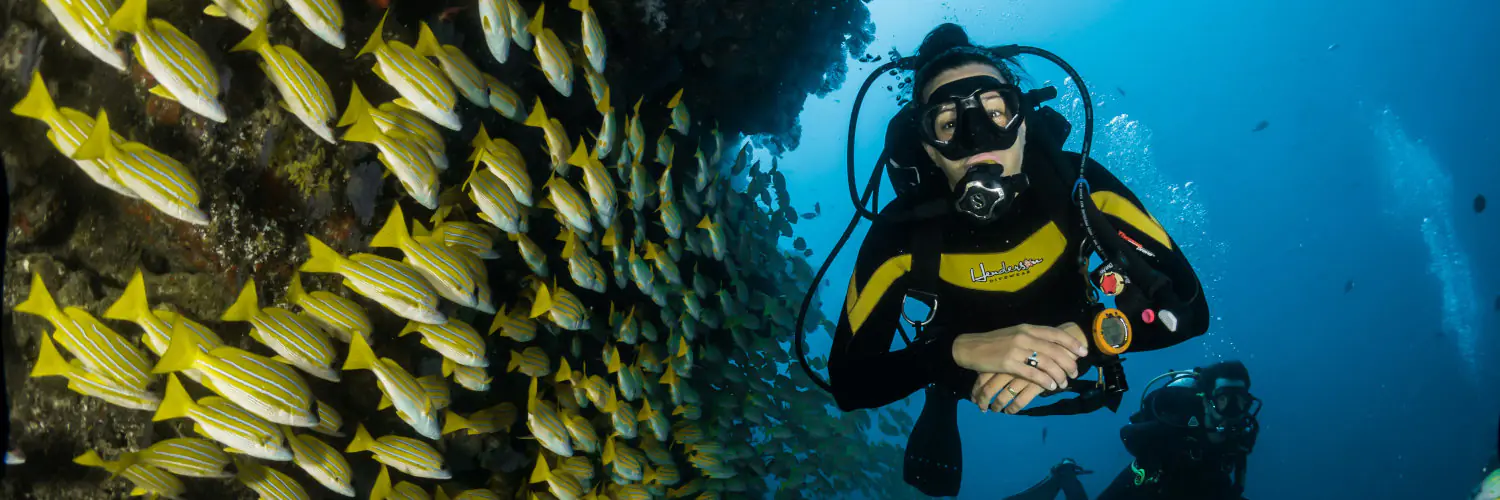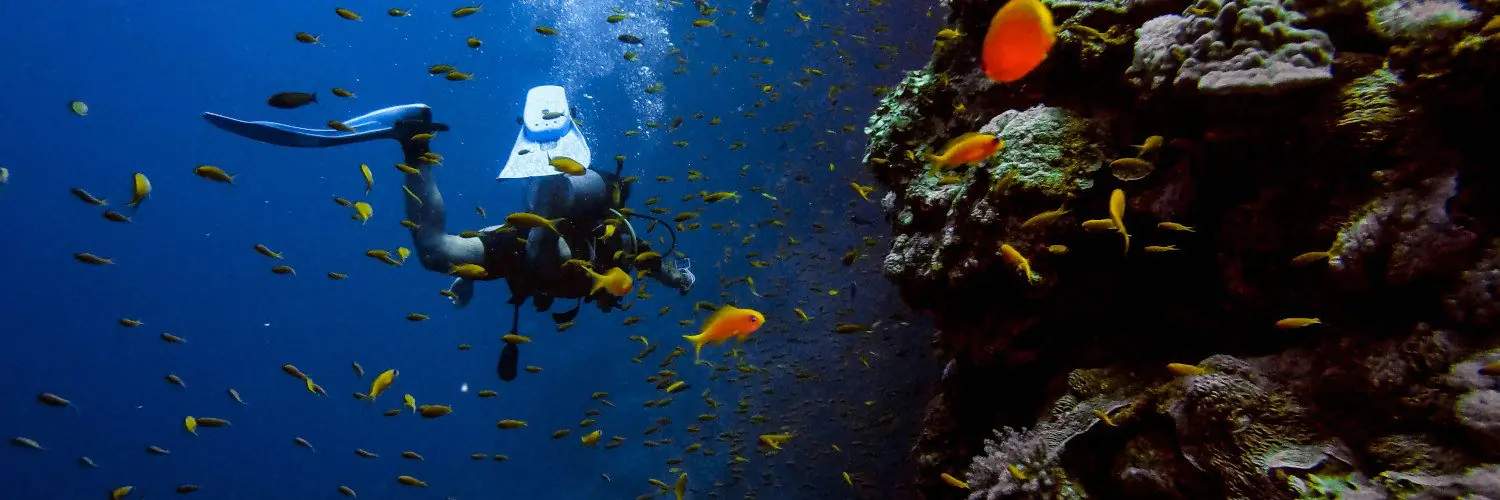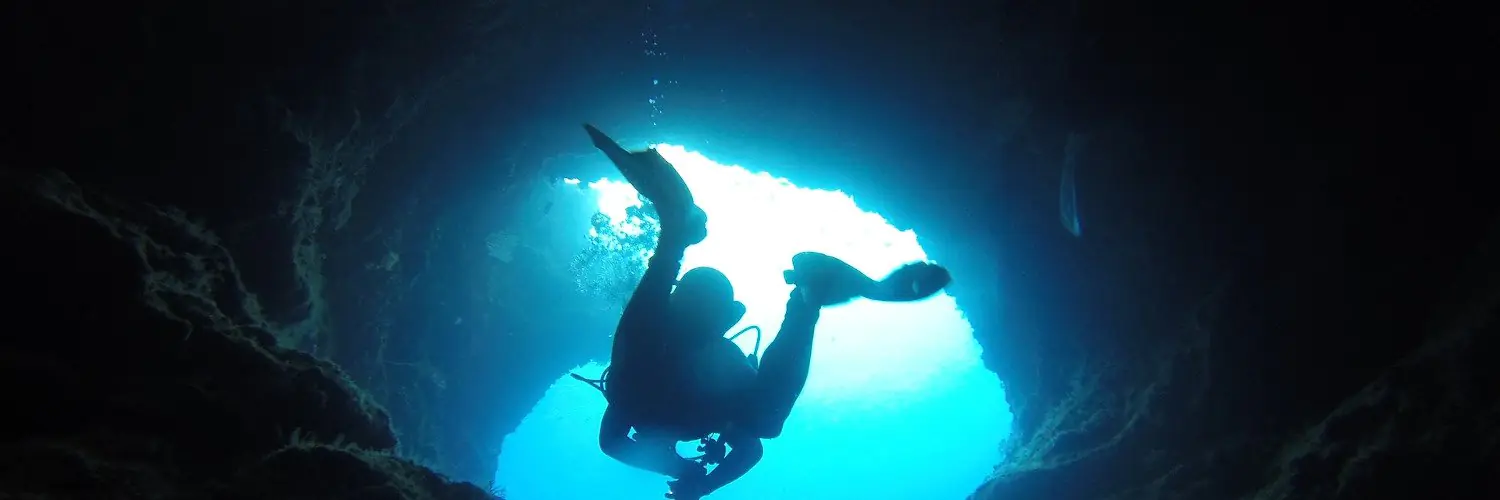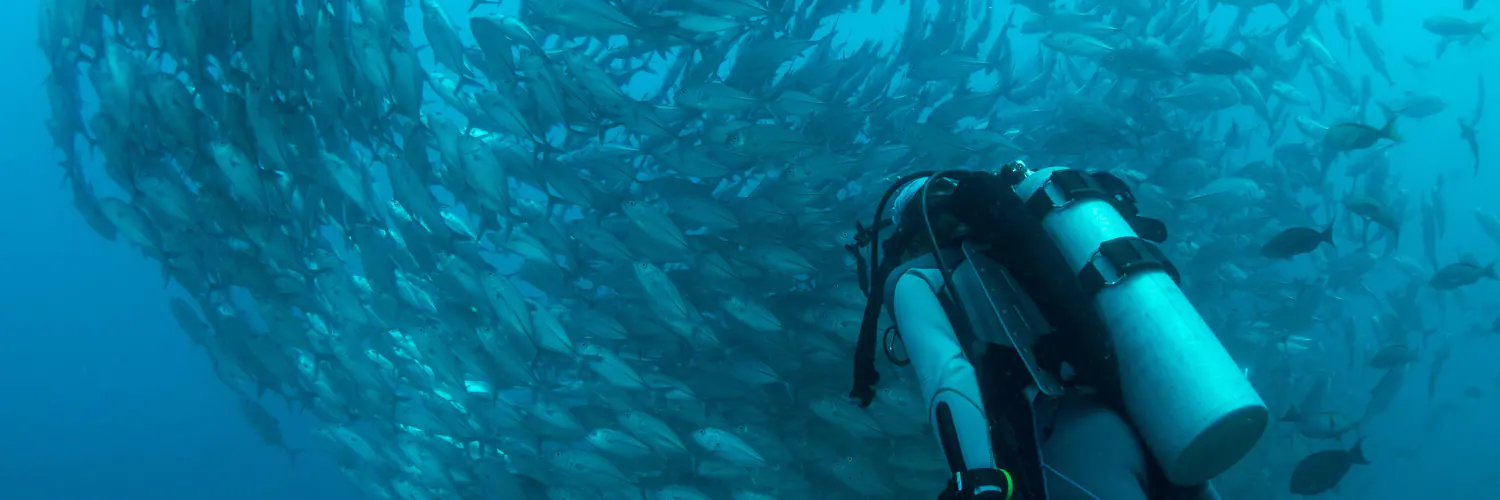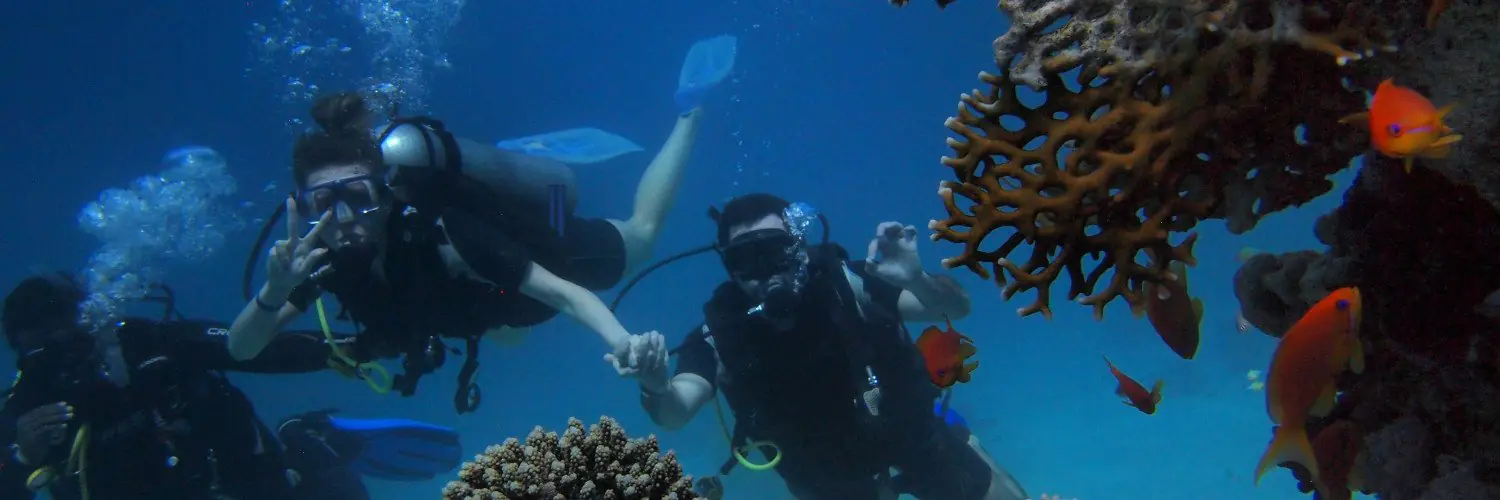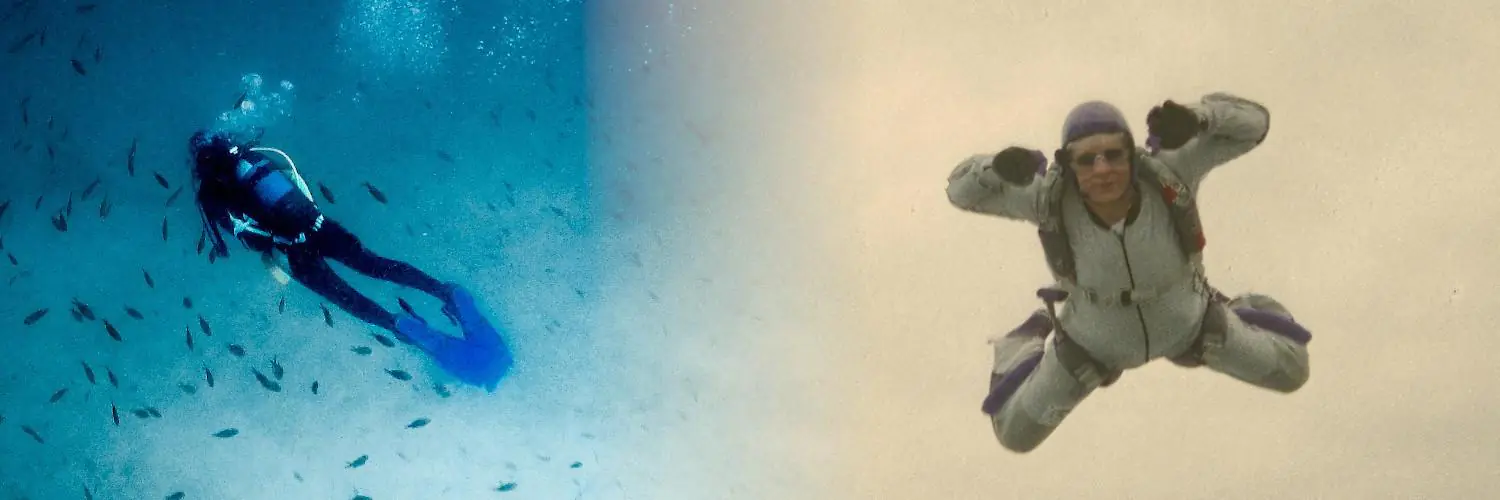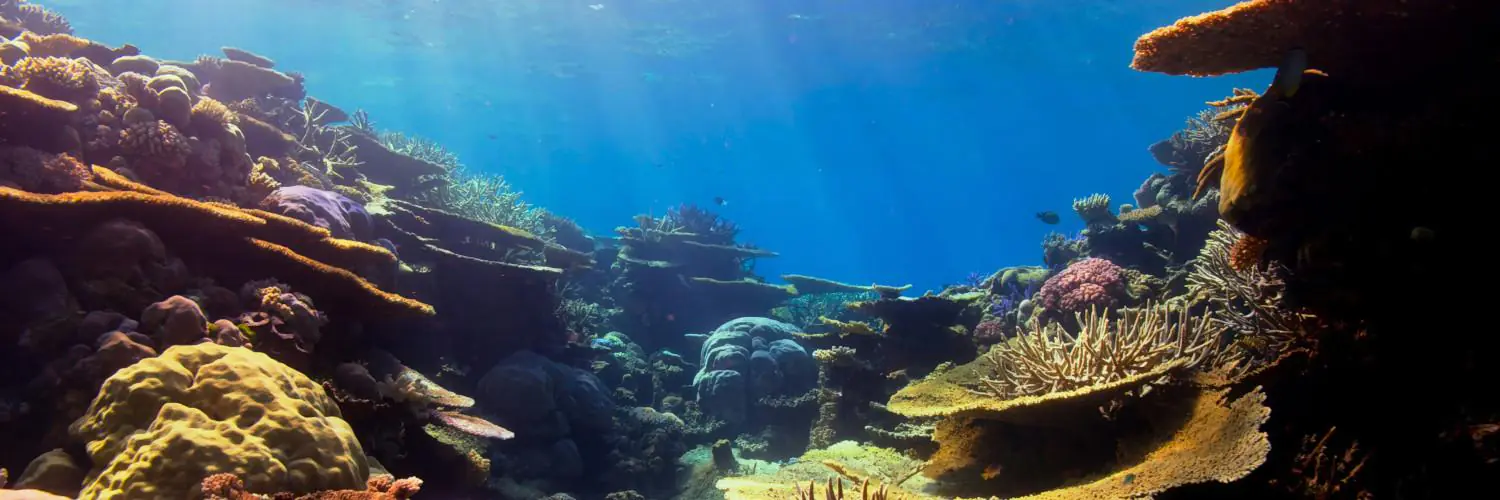The pursuit of setting underwater records has captivated the adventurous spirit of divers around the globe. Pushing the boundaries of human endurance and scuba diving technology, various individuals have challenged themselves to achieve the longest time spent submerged. This remarkable feat not only tests the physical limits of the divers but also provides valuable data for underwater habitation and scientific research.
Among notable achievements is the impressive record set by Dr. Joseph Dituri, commonly known as “Dr. Deep Sea.” He marked a significant milestone in the history of scuba diving by living underwater for an extended period exceeding previous records. His endeavor was hosted in a fixed underwater habitat, a controlled environment that allowed him to shatter the boundaries of time spent beneath the waves.
These record-setting ventures have implications that extend beyond personal triumphs. They shed light on human capabilities under extreme conditions and open doors to understanding how underwater living impacts the human body. As more divers take on such challenges, they contribute to the knowledge base that can benefit future scientific explorations and advance the field of marine biology.
Table of Contents
History of Underwater Endurance Records
The quest for breaking the record for the longest time spent underwater with scuba gear has been marked by a series of remarkable achievements, with divers continuously stretching the limits of human endurance.
Previous Records and Milestones
The annals of underwater endurance records are chronicled by the Guinness World Records, which has documented several milestones over the years. one such record was set by Turkish diver Cem Karabay, who spent 142 hours, 42 minutes, and 42 seconds underwater in northern Cyprus in 2016. However, he was eventually surpassed by other divers who took the challenge to the next level.
Joseph DiTuri and Project Neptune 100
Joseph DiTuri, also known as ‘Dr. Deep Sea,’ extended the boundaries with Project Neptune 100. DiTuri, a former US Navy diver, set a new world record by living submerged in an underwater habitat for an unprecedented period. His initiative was part of a scientific research project rather than a mere test of persistence.
Bruce Cantrell and Jessica Fain: Tennessee Professors’ Underwater Journey
Before DiTuri’s significant leap, the title of longest time living underwater was held by Bruce Cantrell and Jessica Fain. Both being Tennessee professors, they stayed underwater for a considerable duration, surpassing the previous mark. Their endeavor entailed not only breaking a record but also imparting education through regular classroom engagements from beneath the surface.
Scientific Aspects of Long-Term Underwater Habitation
Exploring the scientific aspects of prolonged underwater habitation requires an in-depth look at how the human body and mind respond to the unique underwater environment. Research in this domain not only advances deep sea exploration but also contributes significantly to the fields of biomedical engineering and physiology.
Physiological Effects on the Human Body
The human body encounters distinct physical challenges when submerged for extended periods. Scientists and biomedical engineers have observed hemodynamic changes due to increased ambient pressure, which can affect cardiovascular functions. Experiments also indicate that oxidative stress levels can rise significantly, which has the potential to accelerate aging processes and impact inflammatory markers. Furthermore, the science of decompression is vital, as the risk of decompression sickness increases with prolonged exposure. Long-term immersion also necessitates monitoring of cholesterol and other blood markers, to manage any potential health risks.
Psychological Implications of Isolation and Confinement
Researchers have found that isolation and confinement, typical in long-term underwater habitats, can induce notable psychological stress on individuals. This stress can manifest in various ways, influencing the mind’s cognitive and emotional state. By studying these effects, scientists contribute to understanding how the mind copes with extreme conditions, which is crucial for future deep-sea expeditions and similar isolated environments.
Biomedical Research and Findings
Throughout the duration of underwater habitation experiments, biomedical engineers and scientists conduct various research studies to collect data on the human body’s response to such conditions. They monitor physiological parameters, including inflammatory markers and signs of oxidative stress, to understand the body’s resilience and limits. The scientific findings from these studies not only advance the field of biomedical engineering but also have broader applications in understanding human physiology and health.
Underwater Habitats and Technologies
Innovations in habitat design and life support systems have enabled humans to extend their presence in the marine environment. These technologies have opened the ocean’s depths for research, educational pursuits, and even tourism.
Habitat Design and Engineering
Underwater habitats must withstand the pressures of the deep sea and provide a safe, livable environment for occupants. Engineering advancements are crucial for structural integrity, ensuring that habitats can endure the harsh conditions of the submarine world. They typically include a combination of robust materials and designs that maintain internal pressure and prevent water ingress. The Marine Resources Development Foundation has contributed to these efforts, promoting the sustainable use of marine resources through technology and education, and assisting in the development of habitats that allow researchers and students to live underwater for extended periods of time.
Life Support and Depressurization Systems
Life support systems within underwater habitats are sophisticated setups that manage critical functions such as air purification, temperature control, and waste management. Depressurization technology is a key component in safely transitioning humans between the high-pressure environment at depth and surface conditions. This involves careful control of the habitat’s internal pressure and the use of decompression chambers to ensure divers can ascend without suffering from decompression sickness.
Jules’ Undersea Lodge and Similar Facilities
Jules’ Undersea Lodge is a notable example of an underwater hotel in the Florida Keys, initially developed for research but now also serving as a facility for tourists and education. This underwater lodge is submerged in a lagoon and is entered via scuba diving. Other similar facilities provide a controlled environment to study the marine environment, offer practical training to students, and conduct long-term ocean research. These habitats like Jules’ exemplify how a fixed underwater habitat can be used for both scientific advancements and leisure, showcasing the diverse applications of underwater habitats.
Living Underwater: Daily Life and Routine
Underwater habitats challenge occupants with unique daily routines and necessities. From survival basics to maintaining personal connections, the individual living underwater must adapt to a life markedly different from that on land.
Daily Activities and Survival Basics
Each day underwater, the individual must monitor oxygen levels, manage energy consumption, and ensure the proper functioning of life support systems. In the case of Project Neptune 100, where a university professor spent 100 days submerged in Key Largo, this involved routine checks of the habitat’s integrity and resource management. Survival underwater also requires daily exercises to counteract the effects of prolonged buoyancy. Resistance bands often become key workout tools to maintain muscle tone.
Safety protocols are meticulously followed to prevent hazardous situations. In confined spaces, redundancy in safety measures is paramount, with regular drills and equipment checks.
Communication, Education, and Online Interaction
Despite physical isolation, inhabitants remain connected with the outside world. The professor engaged with students through online classes and provided updates via Instagram, fostering a sense of community even from beneath the waves. Communication technologies ensure daily conversations with family and colleagues are possible, which is crucial for psychological well-being.
Digital tools enable seamless interaction and continue educational outreach efforts. For Project Neptune 100, online platforms were instrumental in sharing the endeavour’s progress and significance with a broad audience.
Diet, Sleep, and Recreational Aspects
Proper nutrition and sleep patterns are vital to cope with the demanding environment. Meals are often protein-heavy, featuring foods like eggs and salmon to support muscle maintenance and repair. Sleep under the sea, particularly aiming for adequate REM sleep, is meticulously managed to ensure mental alertness and health.
Recreational activities are carefully chosen to align with the limited space and resources. They are often designed to reduce feelings of isolation and to sustain mental health. Room for leisure and creativity becomes an essential part of daily life, just as on the surface.
Impact and Future Implications
The record-breaking underwater stint by a University of South Florida associate professor not only sets a new bar for human endurance but also paves the way for groundbreaking research and outreach in ocean conservation. These pioneering efforts are expected to yield valuable insights and have a lasting impact on various related fields.
Contributions to Ocean Research and Conservation
Joseph Dituri, a retired U.S. Naval Officer and a diving explorer, made considerable contributions during his stay underwater which may benefit ocean research. His unique experience living in the underwater world of Key Largo, at the Florida Keys, under atypical water pressure, presents a special opportunity to study the effects of extreme environments on the human body. This information can be instrumental for scientists focusing on preserving, protecting, and rejuvenating marine ecosystems. The findings from this associate professor’s mission could also assist in developing more effective strategies for ocean conservation, aiding in efforts across multiple countries.
Preparing for Long-Term Missions in Extreme Environments
Dituri’s work has implications for preparing humans for long-term missions in not only underwater habitats but also other extreme environments such as space. His experience as an astronaut candidate for Project PoSSUM and a US Navy veteran with a deep understanding of extreme pressure has informed various techniques and protocols. By breaking the world record for the longest time spent underwater, Dituri essentially ran a live experiment on endurance and adaptability, valuable research that can help prep astronauts and other professionals for lengthy expeditions where adaptation to extreme pressure is crucial.
Inspirational Outcomes for Education and Public Engagement
By living underwater for 100 days, Dituri has inspired not just the scientific community but also the public, showing the capacities of human endurance and the allure of the deep sea. As an associate professor at the University of South Florida, he has leveraged his experience to engage students in his USF course, and his work has garnered the interest of visitors and professionals, such as during the World Extreme Medicine Conference in Scotland. The endeavor serves as a beacon to both medical researchers and ocean researchers, potentially inspiring future generations to explore and advocate for ocean conservation. His role as an educator demonstrates how unique undertakings such as his can excite and inspire individuals to learn more about our planet’s oceans and how to protect them.

